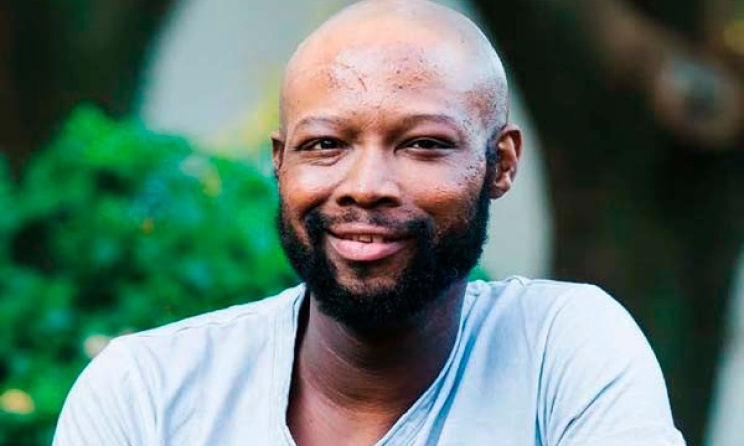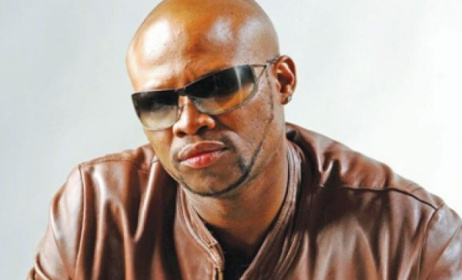A tribute to Mandoza
He was the man who made kwaito respectable. Mduduzi Tshabalala, better known as Mandoza, produced the first cross-over hit in this popular South African music genre.
 The late kwaito star Mandoza. Photo: Martin de Kock
The late kwaito star Mandoza. Photo: Martin de Kock
In 2000, Mandoza released his iconic album Nkalakatha, featuring the chart-topping hit by the same name. The song, whose title refers to township slang for "top dog", defined his career and became one of the country's unofficial anthems.
Nkalakatha sold more than 350,000 units and achieved multi-platinum status after gaining high rotation on both traditionally black and white radio stations. It was even included in a marketing campaign dubbed "25 Reasons to Love South Africa" by restaurant chain Nando's.
From the get-go, Mandoza was a trendsetter. His entry into the music industry began with a bang, with the release of his debut album, 9II5 Zola South, in 1999. He also made a mark as part of the kwaito group Chiskop, which he started with three childhood friends, S'bu, Siphiwe and Sizwe.
"Mandoza was an example of an African boy who came from very humble beginnings but, using his talent and working with the right people, he stood out as a true shining example that anyone who believes in himself or herself can achieve their dreams," said Nkalakatha producer Gabi le Roux.
"With the legacy of apartheid, the majority of our people had the odds stacked against them. In his time, it was a young democracy. But even the most right-wing and racist communities adored him and that song. He had the freedom of any city," Le Roux was quoted as saying on local media.
"We can take Mandoza as an example that a good song and an artist like that can bring us together."
The boy who grew up on the rough streets of Zola, Soweto, and did jail time for car theft when he was just 16 years old, became the toast of the music industry in 2001, when Nkalakatha won a South African Music Award (SAMA) for Song of the Year.
Mandoza never forgot his township roots. But he didn't like the thuggish message often espoused by kwaito, the up-tempo music that became the soundtrack of Soweto in the 1990s.
The rapper did his best to be more uplifting. This was revealed through his song ‘Uzoyithola Kanjani’ (How are you going to get it, if you don't get up and go for it?)
In recent years, the musician bemoaned the consequences of Nkalakatha's popularity.
"I'm so sick of that song, so sick of performing it. I've performed it for 11 years," he said in a 2011 interview.
"Don't get me wrong: I'm grateful for its success, but I really don't like performing it anymore."
Mandoza will certainly be remembered for more than that dance floor favourite. His curriculum vitae include a featuring role in the 2006 rugby movie Number 10, directed by Oscar-nominated director Darrell Roodt.
He also collaborated with a wide range of artists, including Afrikaans electro band Die Heuwels Fantasties, pop singer Danny K, and Namibian kwaito artist EES and Croatian rocker Dino Jelusic on two songs addressing rhino poaching and corruption.
In 2004, Mandoza was voted one of the 100 Great South Africans.
His status as a true South African icon was confirmed by the tributes that poured in following his death on Sunday 18 September at the age of 38. He died after being diagnosed with brain cancer last year.
For a man who produced music in several South African languages, including English, Afrikaans, Zulu and Xhosa, it was only fitting that he was honoured by South Africans from all walks of life - from President Jacob Zuma to legendary musician Sipho "Hotstix" Mabuse.
"My very first music video ever was ‘Chiskop S'funabantwana'. Although they wanted the gusheshe spinning and picking up girls, Mandoza understood when I told him I've had 4 jackroll (gang rape) attempts, and could not make a music video glorifying jackroll," lesbian activist and filmmaker Bev Ditsie wrote in a Facebook post on Sunday.
"He got it. He gave me a hug and said ok, let's do a video respecting sisters. The video didn't make it big. But the guys were happy with it. This was my boy. My friend. A man I could be real with. I am devastated. RIP my guy. You were one of a kind Nkalakatha."
Mandoza is survived by his wife, Mpho, and his three children.

























Comments
Log in or register to post comments